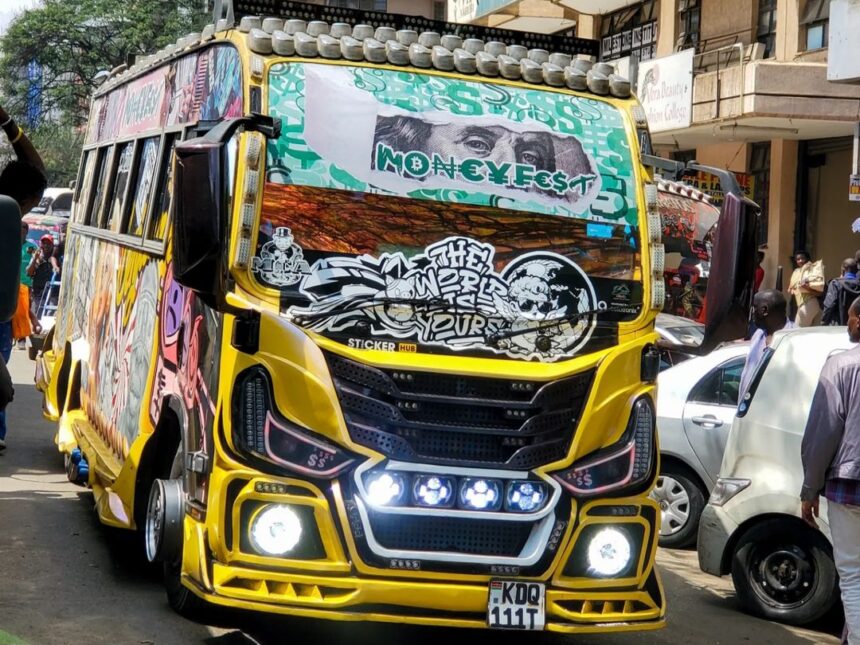The Money Fest matatu, owned by George Ruto, has been making headlines across Kenya for several reasons. Since it hit the road in August, the PSV vehicle has been the subject of public scrutiny, particularly after it was revealed that it wasn’t registered with any Sacco and lacked mandatory certification from the National Transport and Safety Authority (NTSA). Further adding to the controversy, the vehicle was reportedly seen breaking traffic rules, raising questions about its compliance with regulations.
Despite the backlash, George Ruto, bowing to public pressure, agreed to submit the Money Fest matatu for NTSA inspection, addressing some concerns over its legality. However, the vehicle’s earnings have sparked even more debate. In a recent TikTok video, the driver, nicknamed Kinara, shared some startling figures about Money Fest’s monthly income.
How Much Does Money Fest Make?
According to Kinara, the Money Fest matatu is a lucrative venture, making a significant profit each month. “The vehicle cost KSh 20 million, and in a month, we make KSh 500,000,” he proudly stated in the video. This revelation caught the attention of many, considering the controversies surrounding the matatu’s registration and operation.
Kinara further commented on the vehicle’s profitability, asserting, “We are not suffering.” He also took a dig at other city matatus, asking how much they earn daily, implying that Money Fest’s earnings far surpass those of typical public service vehicles.
Conductor Confirms the Earnings
Collins Waweru, a conductor on the Embakasi route, also weighed in on the figures shared by Kinara. He confirmed that the estimates were not too far-fetched. “We charge KSh 100 to town and earn about KSh 14,000 daily, which translates to around KSh 420,000 monthly. Given that passengers along the Rongai route pay up to KSh 150, Money Fest can easily make KSh 500,000 monthly,” Waweru explained.
Public Reaction
The figures and revelations about Money Fest’s profitability have sparked mixed reactions among Kenyans. Some have expressed skepticism about the business model, while others have highlighted the challenges that come with starting a business like a matatu.
One commenter, @AmoHsToo, suggested that profits should only be counted after the break-even point is reached, emphasizing the importance of recovering the initial investment. Another, @254wunderkind, noted that proximity to power shouldn’t cloud judgment, hinting at the potential political connections that could influence the business.
The Visit to Sugoi
In another twist, Money Fest made a visit to Uasin Gishu county, making headlines once again. The vehicle was spotted in Eldoret and even visited George Ruto’s upcountry home in Sugoi, where it turned heads with its flashy lights and extravagant appearance. The matatu became the talk of the town, with many marveling at its bold and unique design.
While the Money Fest matatu has stirred controversy, especially regarding its compliance with regulations, it’s undeniable that it’s making waves in the matatu industry. With impressive earnings of KSh 500,000 a month, the vehicle’s success is hard to ignore. However, questions remain about its long-term sustainability and adherence to the laws governing public transport in Kenya. Only time will tell if Money Fest will continue to thrive amidst the scrutiny it faces.














